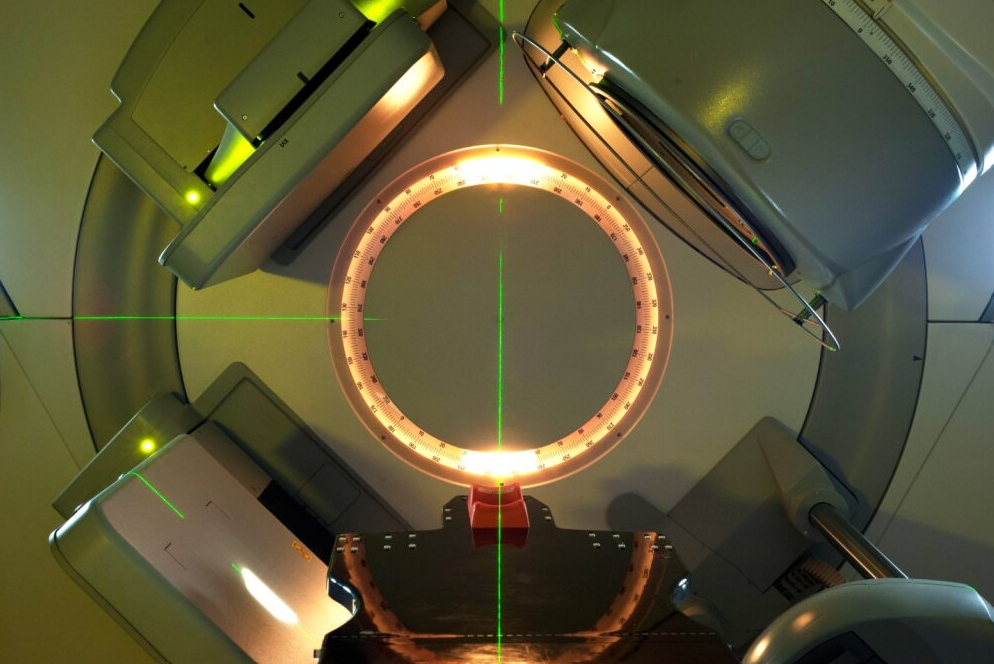The Institute of Cancer Research, London, has received the highest national honour in UK further and higher education for its pioneering radiotherapy research.
The Queen Elizabeth Prizes for Higher and Further Education (formerly the Queen’s Anniversary Prize) recognise the radiotherapy research programme at The Institute of Cancer Research (ICR), which has significantly improved patient treatment, and delivered benefits to healthcare systems and economies in the UK and around the world.
The Prizes, first awarded in 1994, reflect the late Her Majesty Queen Elizabeth II’s lifelong dedication to education, and this marks the ICR’s third time receiving the award.
The Queen Elizabeth Prizes acknowledge the significant contribution that the ICR has made in revolutionising cancer care by pioneering advanced radiotherapy techniques and leading clinical trials that have improved patient outcomes, reduced costs, and shaped global treatment standards.
Radiotherapy is the cornerstone of cancer treatment
Radiotherapy is a cornerstone of cancer treatment, contributing to nearly half of all cancer cures and improving quality of life for up to 60 per cent of patients. Scientists at the ICR, working in close partnership with colleagues at The Royal Marsden NHS Foundation Trust, have played a part in some of the most pivotal developments in radiotherapy research by integrating biological and medical physics research with clinical practice. The honour focuses on how these discoveries have improved the lives of people with cancer by:
- Pioneering high-precision techniques such as Intensity Modulated Radiotherapy, Stereotactic Body Radiotherapy and Magnetic Resonance Linear Accelerator (MR Linac) technology, which have significantly improved treatment for prostate and head and neck cancers.
- Leading landmark clinical trials (including CHHiP, PACE-B, PARSPORT, DARS) that have reduced treatment times, enhanced survival rates, and minimised side effects.
- Saving the NHS more than £28 million annually through more efficient hypo-fractionated treatment regimens that require fewer visits to hospital.
- Educating and empowering the workforce, training many of the UK’s clinical oncologists and advancing research engagement among radiographers.
A recognition of outstanding work
Much of the research recognised by the award was funded by the ICR itself, government funding bodies including the National Institute for Health and Care Research (NIHR) Biomedical Research Centre at The Royal Marsden and The ICR and the charity Cancer Research UK.
The Queen Elizabeth Prizes for Higher and Further Education are granted every two years by The Monarch in recognition of outstanding work by UK colleges and universities.
To qualify, an institution must produce high-quality innovative work that benefits the public in a distinctive way.
Experts, specialists and organisations across the UK are involved in the independent review process, which takes several months. The Awards Council of the Trust considers a shortlist of entries, and The Monarch approves a final list of recommended institutions, on the Prime Minister’s advice.
The ICR was previously recognised with Queen Elizabeth Prizes for Education in 2017 and 2023 for its outstanding contribution to the discovery of new cancer drugs and for innovative work in breast cancer research, including in radiotherapy.
‘This award is a powerful recognition of decades of collaborative laboratory and clinical research’
Professor Kevin Harrington, Head of the Division of Radiotherapy and Imaging at The Institute of Cancer Research, London, said:
"This award is a powerful recognition of the decades of collaborative laboratory and clinical research that have transformed radiotherapy into the highly targeted, personalised treatment that it is today. I’m extremely proud of the role our scientists and clinicians have played in developing techniques and trials that are now improving outcomes for patients across the globe."
Dr Alison Tree, Consultant Clinical Oncologist at The Royal Marsden and Reader in Uro-oncology Clinical Trials at The Institute of Cancer Research, London, said:
"We are delighted that this award recognises not only our research but also the vital role of education in advancing cancer care. The Royal Marsden and the ICR have a unique partnership that combines world-class clinical expertise with academic excellence. With the methodology leadership from the ICR’s Clinical Trials and Statistics Unit we have delivered landmark trials while training and inspiring the next generation of oncologists. It’s wonderful to see the impact of this collaboration celebrated at the highest level."
Professor Kristian Helin, Chief Executive of The Institute of Cancer Research, London, said:
“We are honoured to receive a Queen Elizabeth Prize for Education, which recognises the worldwide impact of our research advances in radiotherapy. This recognition reflects our commitment to innovation, collaboration, and ensuring that scientific discovery delivers real- benefit for patients around the world."
Sir Damon Buffini, Chair of The Royal Anniversary Trust said:
“The Queen Elizabeth Prizes for Higher and Further Education celebrate the power of education to change the world for the better. This much-loved national honour recognises, at the highest level of state, outstanding work in UK universities and colleges, and the remarkable benefit they bring to our economy, society and the wider world. This year we are delighted to honour 19 institutions whose work offers an inspiring snapshot of the excellent and innovative work going on in universities and colleges across the UK. Congratulations all.”
